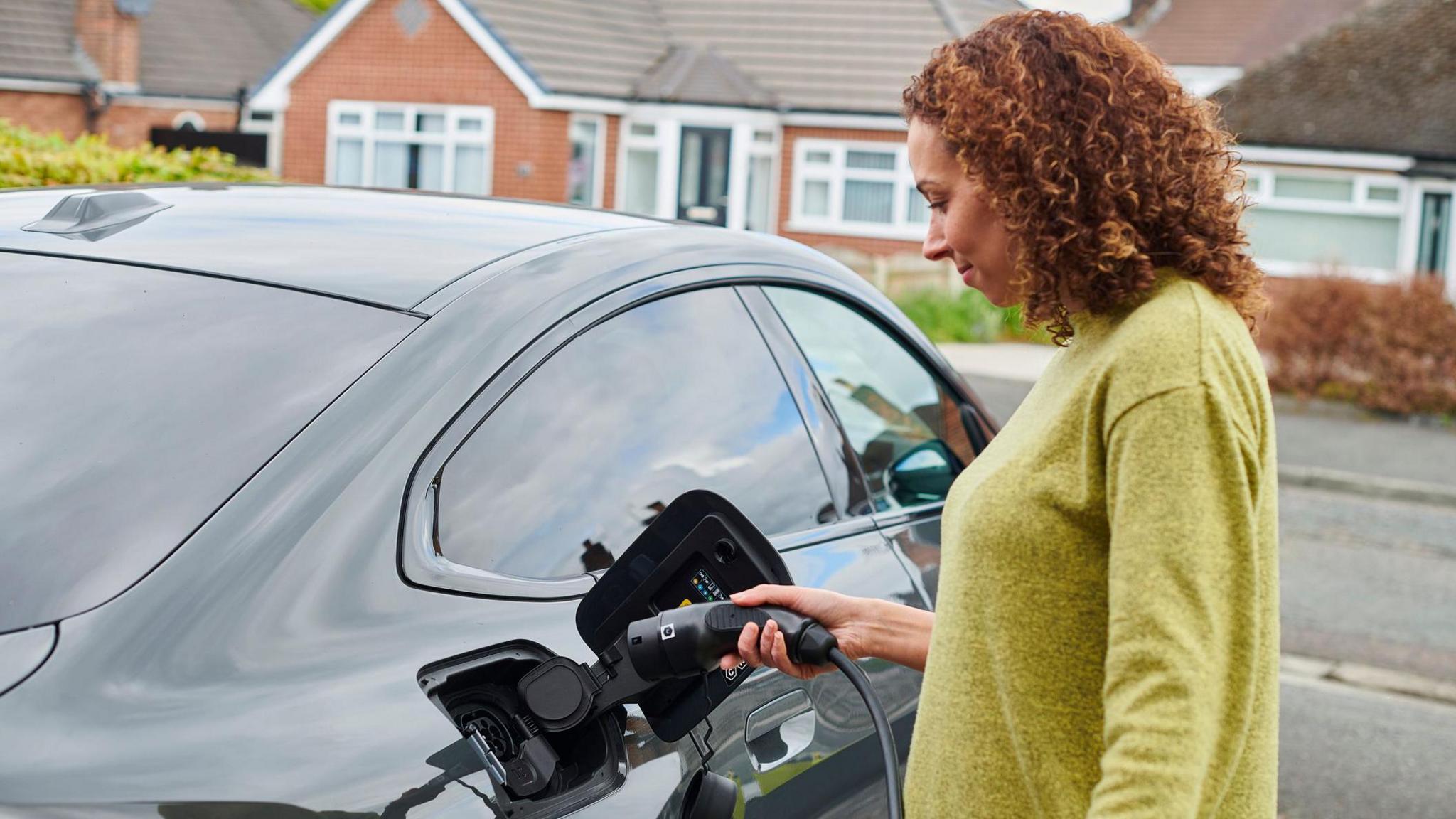The EV-charging blackspots fuelling 'range fear'
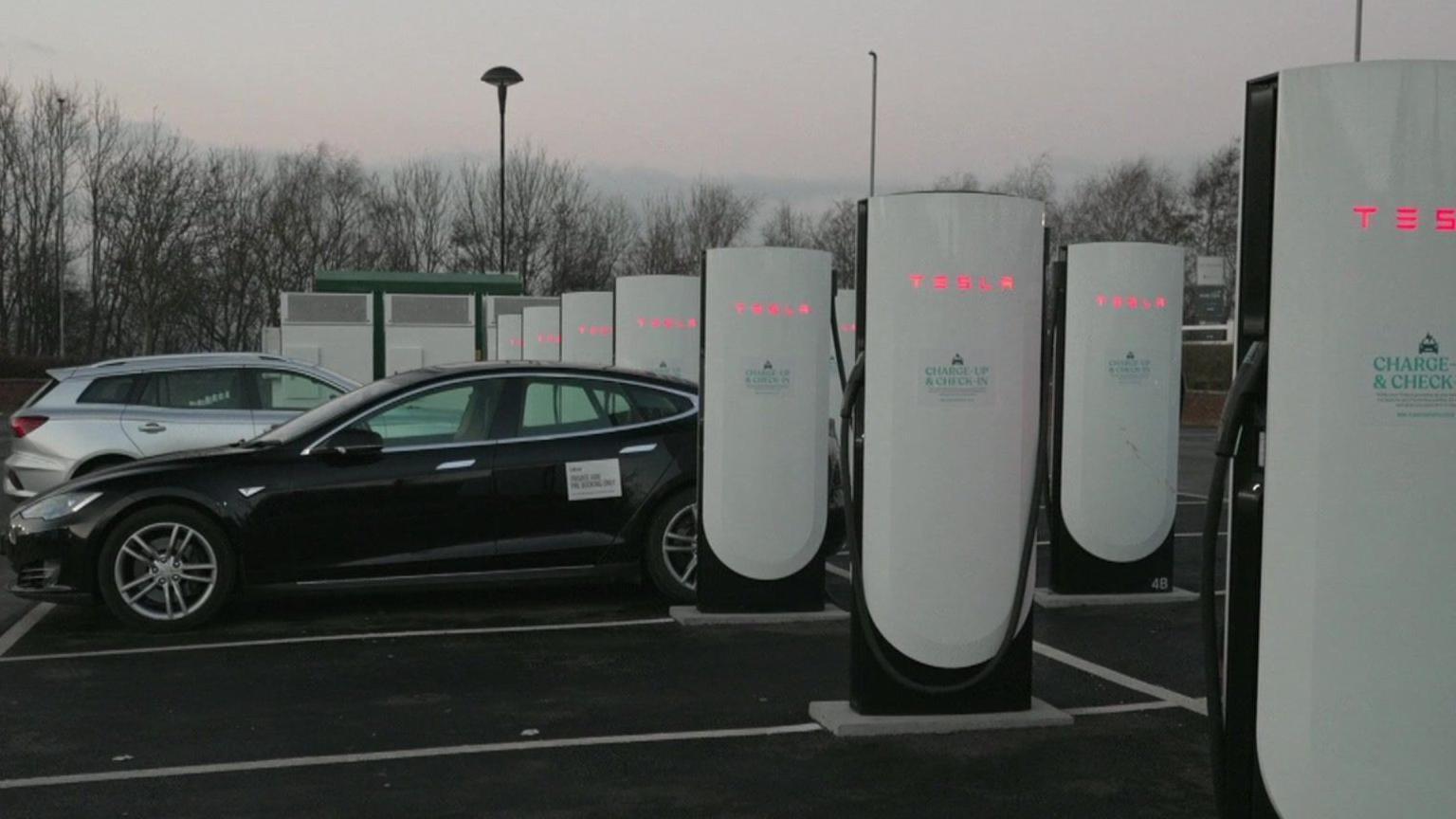
A rapid charging station has opened near the motorway in Bradford, but some living in terraced housing or in rural villages say they are hesitant to make the EV switch
- Published
The sale of new diesel and petrol cars is set to be phased out in the UK over the next decade – but figures show Yorkshire is falling behind in the race to provide sufficient public electric vehicle (EV) charging points.
Bradford was recently given £3m in government funding to boost infrastructure, but some in the district fear demand will outstrip supply, deterring drivers from making the EV switch.
For Tony Maw, transitioning to EV is both inevitable and welcome.
However, he remains hesitant to trade in his hybrid for a fully electric car, citing so-called "range fear" as a key concern.
He asks: "Where can you charge your car in rural communities?
"People cannot necessarily even park by their house, they have to park up against a wall somewhere."
There isn't a single on-street rapid EV charger in his village of Oxenhope, near Keighley, he says.
"When I was going hybrid, I needed a charging point at home because you don't get a great deal of mileage on electric with a hybrid.
"Some people have the opportunity to do that, but those in other places can't."
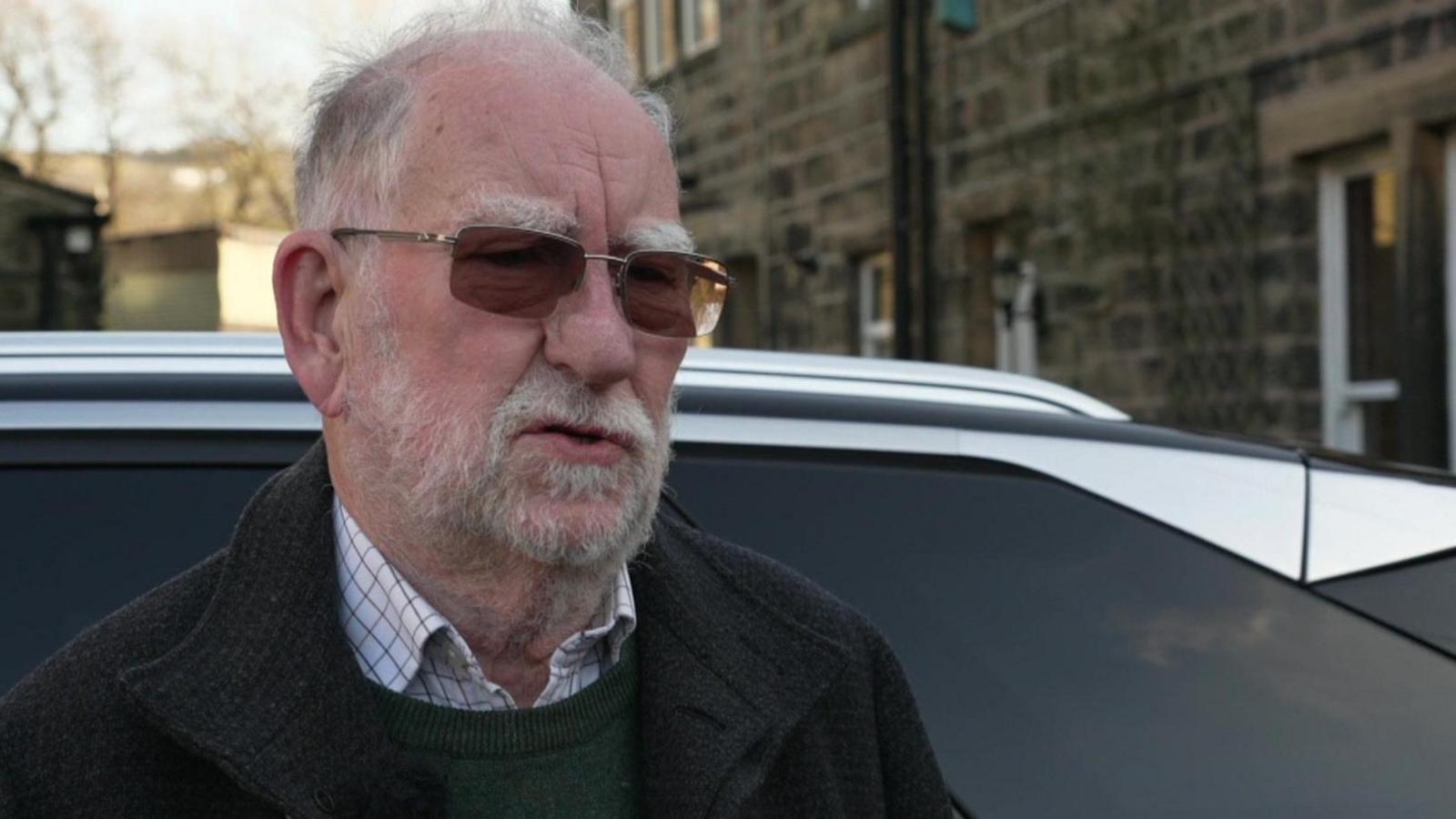
Tony Maw lives in a village which he says doesn't have a single on-street rapid EV charger
The government aims to install 300,000 chargers in the UK by 2030, but fewer than 100,000 are currently in operation.
"The number of chargers needed is probably going to exceed the current plans," he adds.
Rebecca Poulsen, a councillor for the Worth Valley area which includes Oxenhope, says there is an urgent need for local authorities to "look at the gaps in charging".
"Commercial operators install big charging schemes in urban areas, but in smaller villages even one or two chargers could make the difference in whether people decide to get an electric car or not," she says.
"New technology is coming, on-street charging on street lights or under pavements for example, but we need to ramp up efforts."
The Labour-run Bradford Council has secured central funding to install 1,000 new chargers at more than 200 underserved locations, with the areas yet to be confirmed.
Poulsen, Conservative group leader on the local authority, adds: "If a village has just one charger and it's broken, how far is it to another?
"People need confidence that they can charge their vehicles."
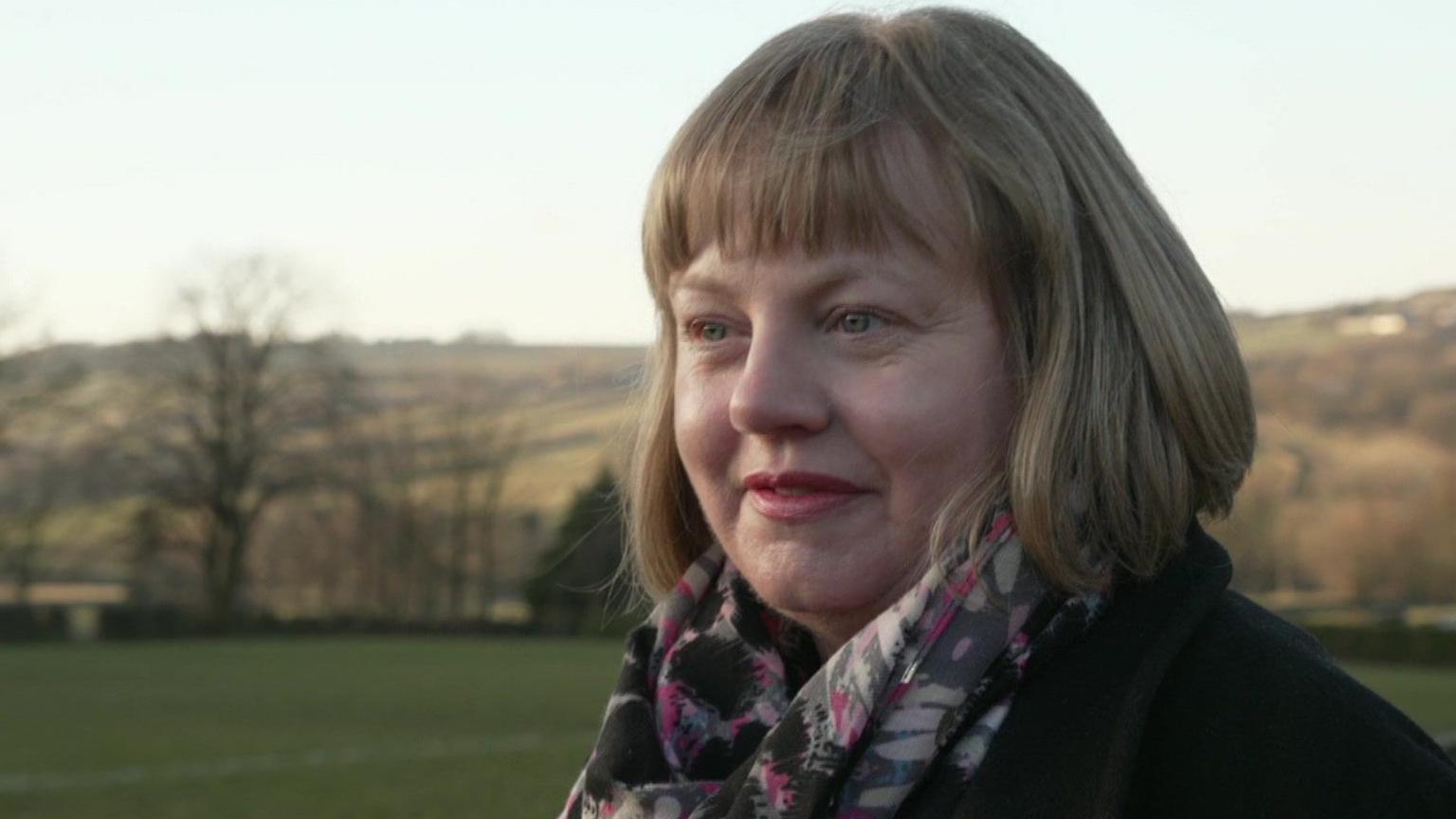
Rebecca Poulsen says better EV infrastructure in rural areas is key to driver confidence
Department for Transport figures show 73,334 public chargers have been installed nationwide so far as of 1 January 2025, with 19,657 built during 2024.
But the data, external also shows that Yorkshire and the Humber is the worst served UK mainland region per 100,000 of the population, alongside the North West.
Both regions have just 66 EV points per 100,000 of the population.
The government has launched initiatives to accelerate the UK rollout, including £450m of Local Electric Vehicle Infrastructure (LEVI) funding.
However the scrapping of road tax exemptions for EV is set to be pushed through from April, with tension between manufacturers and ministers in recent months over targets.
Differences in cost between public and at-home charging has also been a major factor.
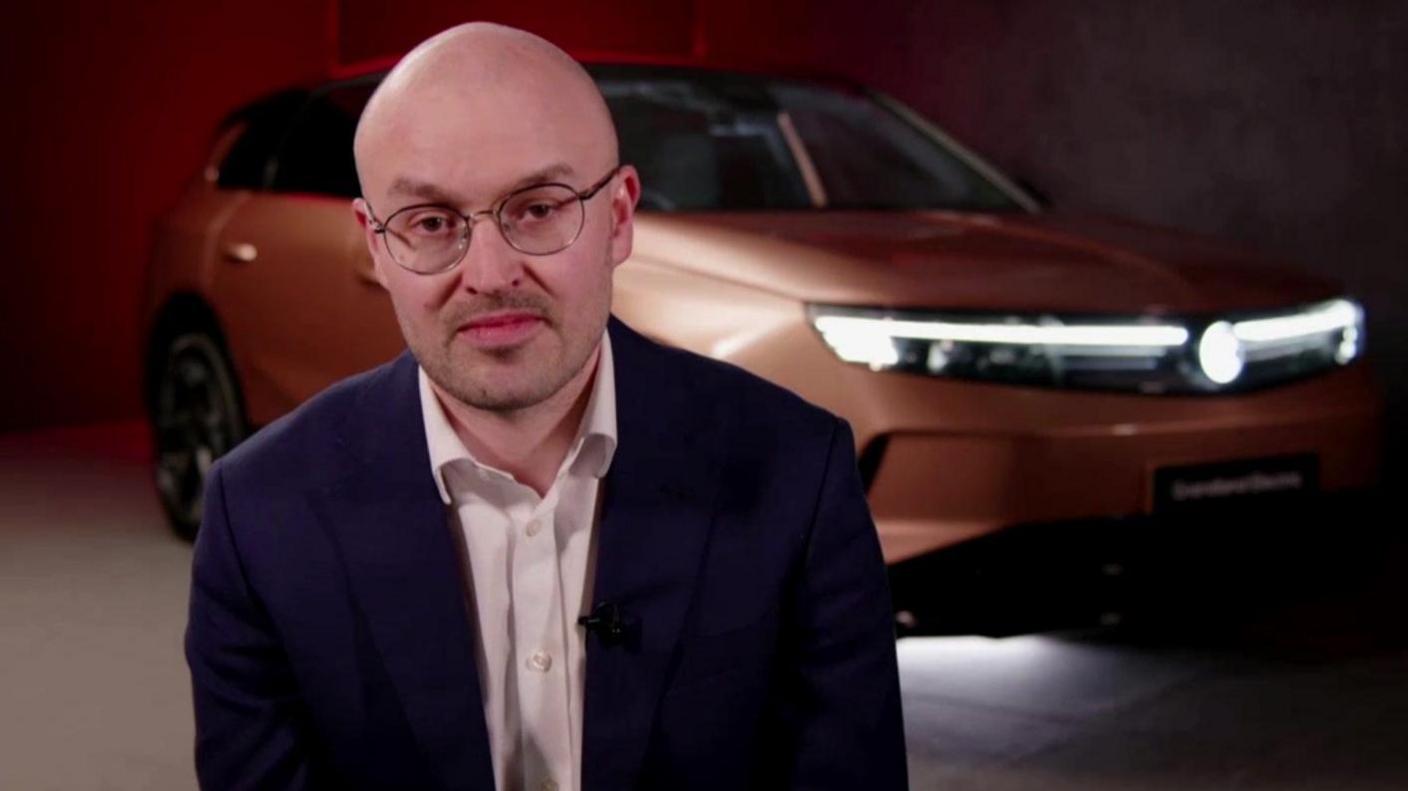
Philip Douglass from Vauxhall's Electric Streets campaign says demand in Yorkshire is outstripping supply
Philip Douglass, who is leading a Vauxhall campaign to improve access to EV charging for those who don't have a driveway, says: "We found that 40% of UK households don't have a driveway, but 80% of charging happens at home."
The driveway figure rose to 60% in places like Bradford, with the district's terraced streets and remote villages proving a challenge.
"Only 25,000 of the 75,000 [UK] public chargers are in residential areas, which is where we need them most," Mr Douglass adds.
The campaign wants everyone to be living within a four-minute walk of an on-street charger as soon as possible.
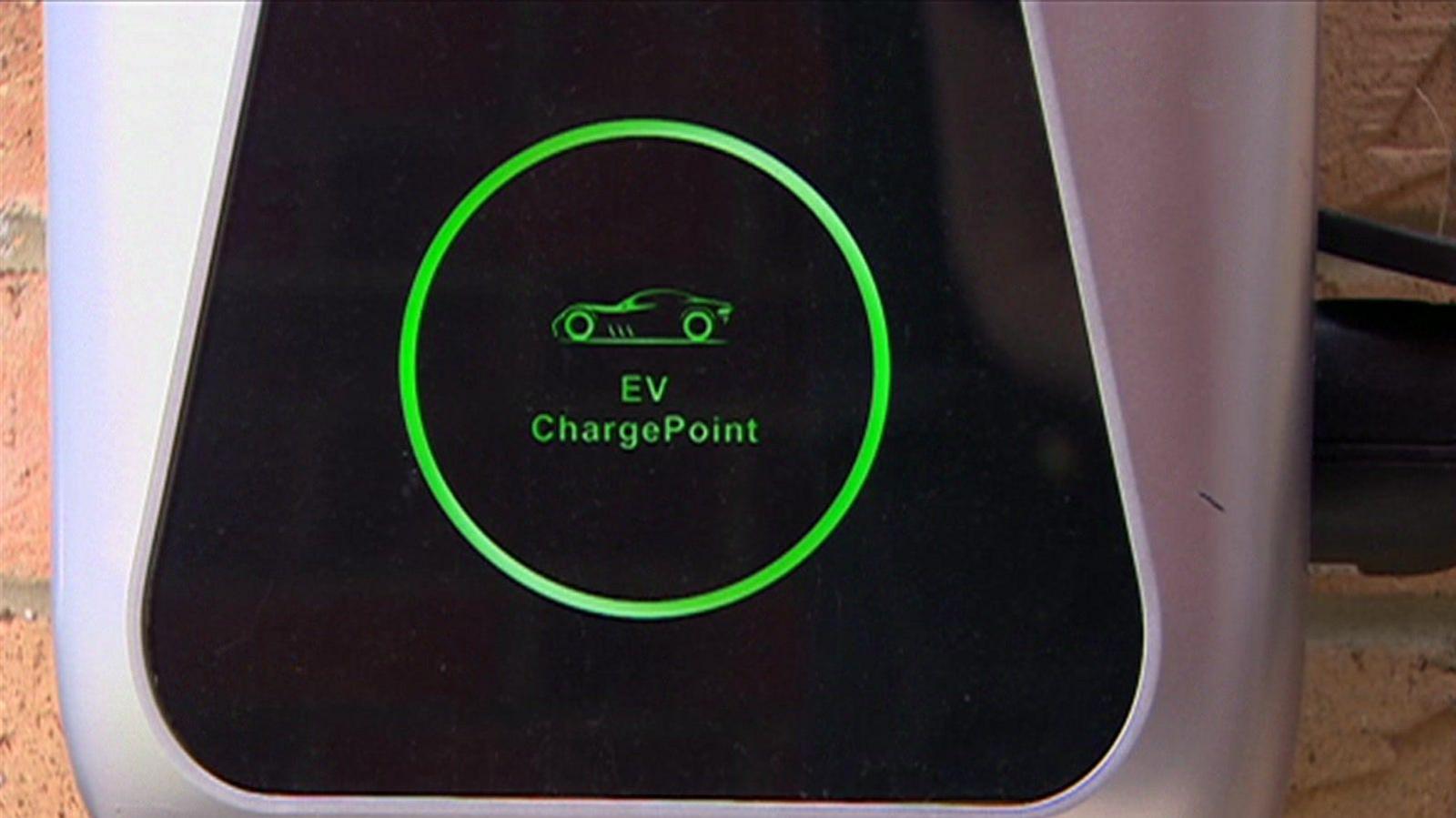
Charging pods on lamp posts could prove a solution to the issue of residents without driveways struggling to charge
Some private sector interventions are making a quiet impact, with a new super-fast charging hub on a hotel site off the M606 in Bradford featuring 16 units in total, and another rapid hub nearby operating out of a drive-through bakery shop car park.
Yasir Hafeez, who bought his EV six weeks ago through a work salary sacrifice scheme, currently makes a 20-mile round trip from Halifax to charge in Bradford.
"I used to have a diesel, which was very expensive - £300 a month just on fuel, plus road tax and insurance," he says.
"This one is much cheaper."
He agrees about the lack of on-street charger coverage, adding: "I have to come here to charge my car.
"There's no supercharger near me."
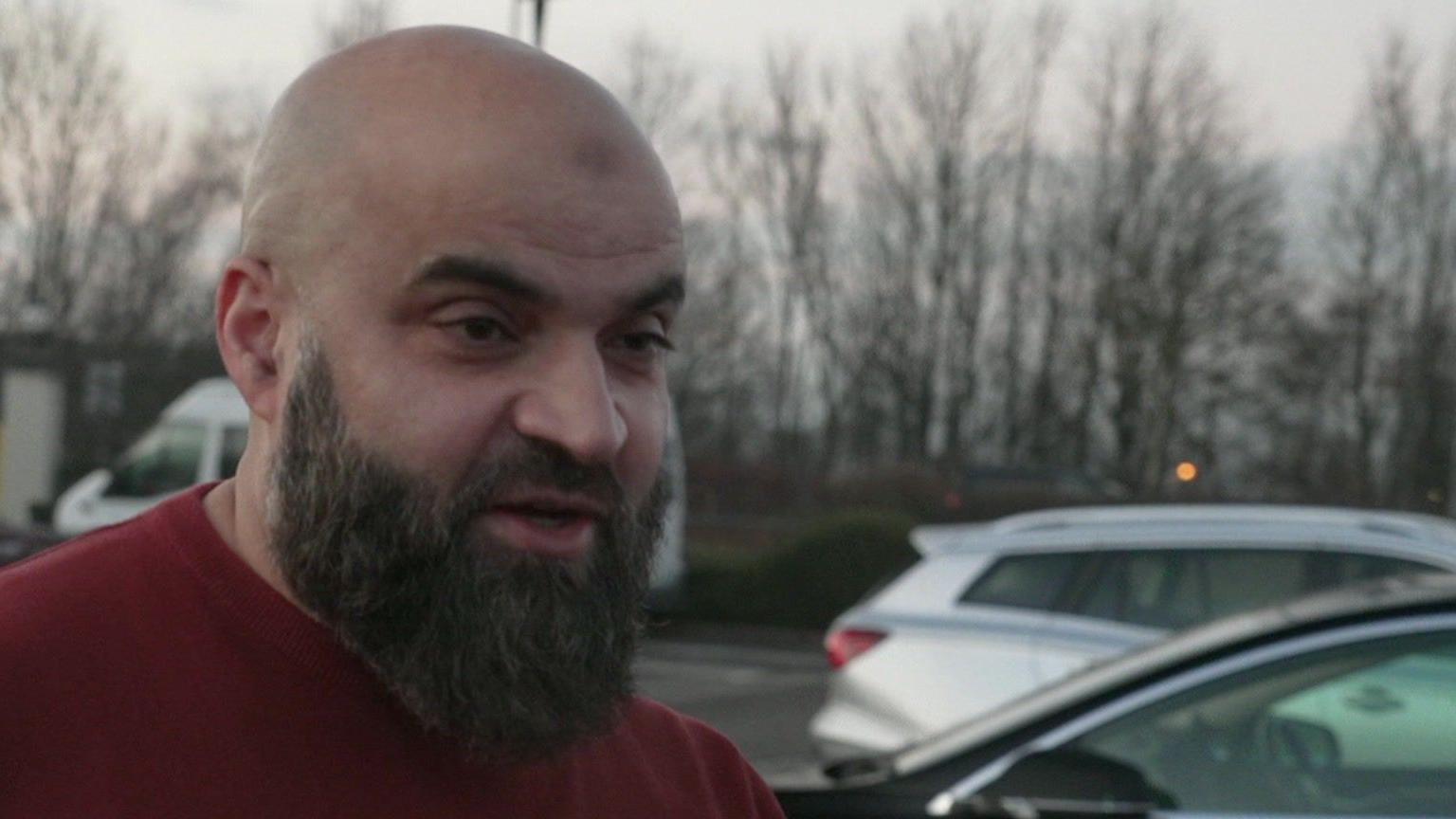
Yasir Hafeez makes a 20-mile round trip every time he wants to charge his car
Wayne Topley, managing director of the Cedar Court Hotel, says hosting the super-fast charging station is a decision to help "futureproof" the business.
"Being an EV owner myself, I do have range anxiety and I have to plan ahead for charging on long journeys," he says.
"I don't think it will be long before we start seeing trucks on the road with large battery capacity, and having central locations like this will really help build confidence for longer journeys."
While the increase in larger, rapid charge locations near key roads is helping in the EV push, many feel its overall success begins at home.
Mr Douglass concludes: "If we don't get electric vehicle infrastructure in that near-home space, we risk creating a two-tier vehicle market where some people can get the latest technology and some people can't."
Listen to highlights from West Yorkshire on BBC Sounds, catch up with the latest episode of Look North or Politics North, or tell us a story you think we should be covering by emailing yorkshirestories@bbc.co.uk.
Related topics
Related stories
- Published4 February
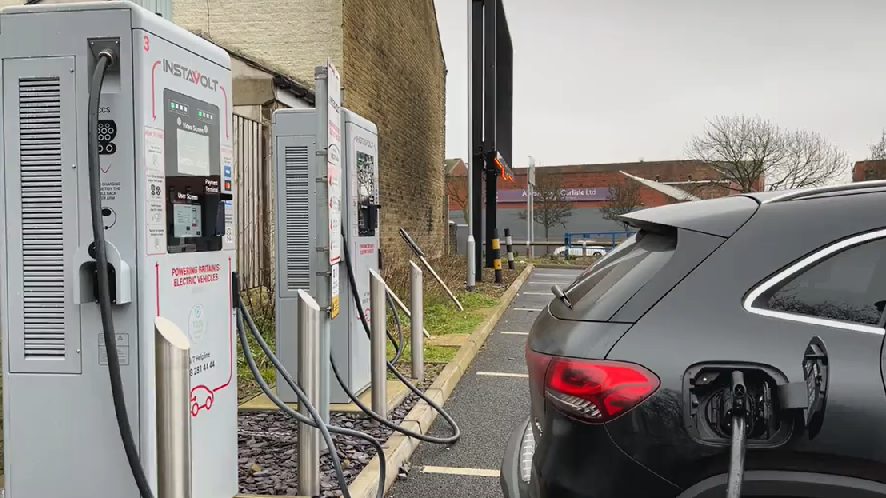
- Published13 January
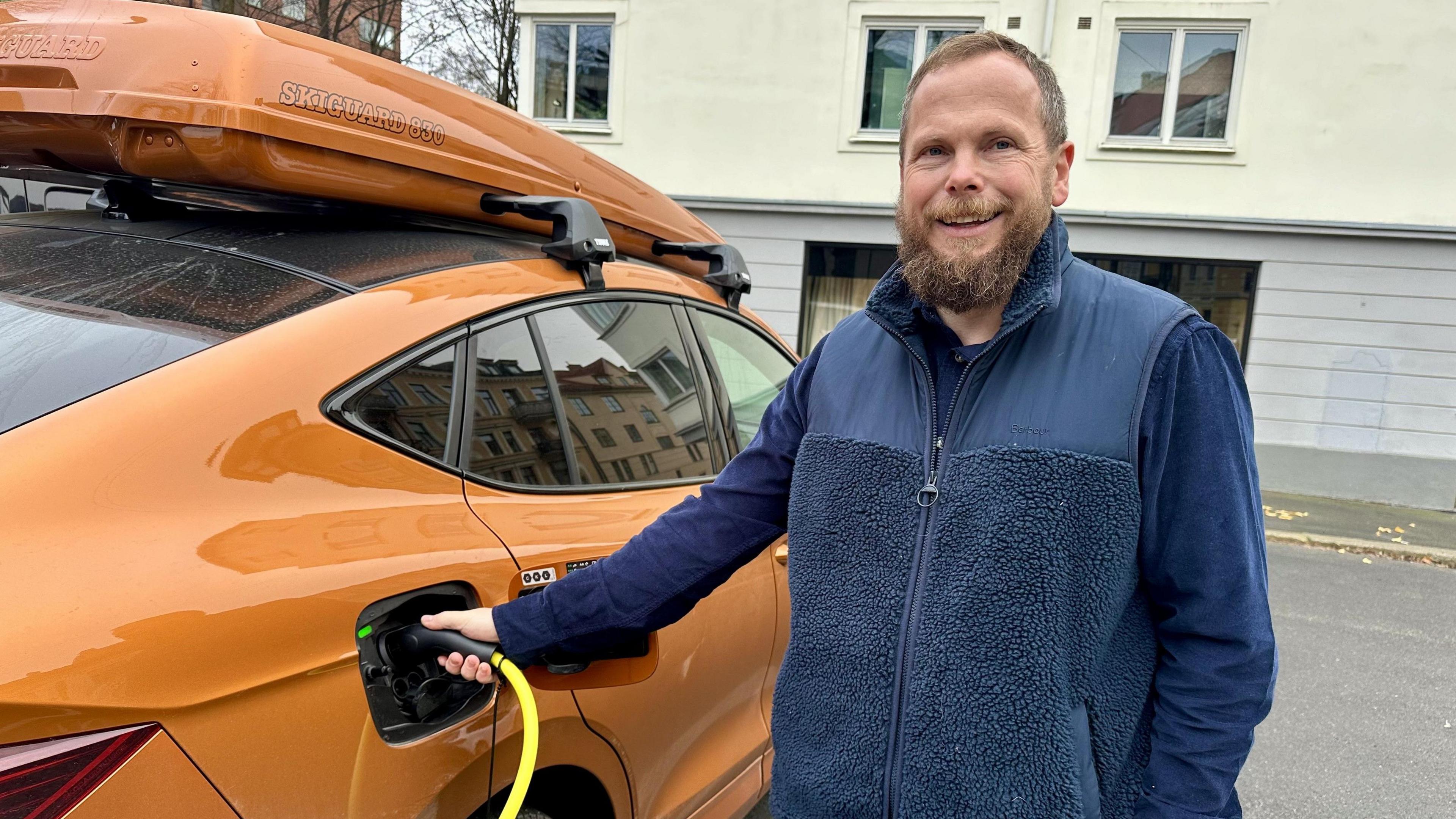
- Published1 December 2024
